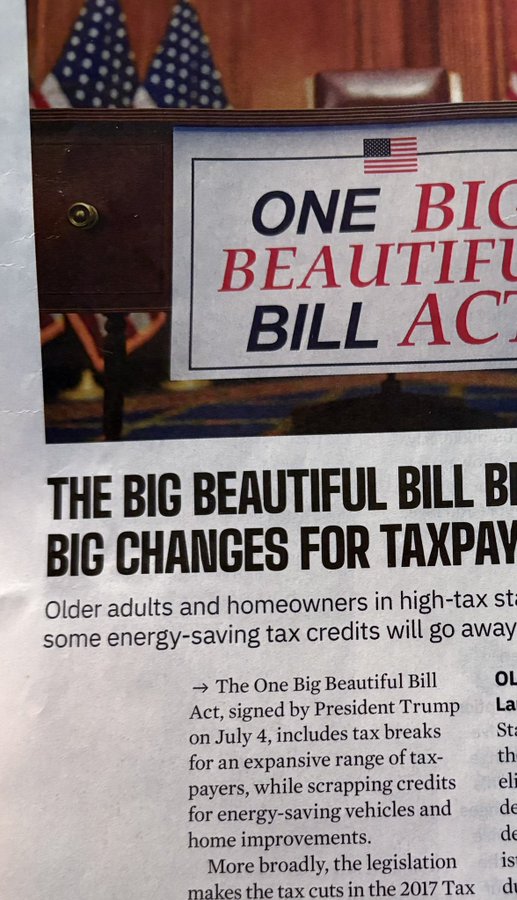My friend always gives me his Kiplinger’s Personal Finance magazines when he’s done reading them. That’s the only reason I even look at the magazine. The September 2025 issue (page 16) is a clear example of subtle word choice shaping perception.
In the Briefing section, Kiplinger writes:
“The One Big Beautiful Bill Act, signed by President Trump on July 4, includes tax breaks for an expansive range of taxpayers, while scrapping credits for energy-saving vehicles and home improvements.”
That phrasing is misleading. Calling EVs “energy-saving vehicles” assumes they actually save energy. But electric cars can only drive so far before they need hours of recharging. Their batteries require energy-intensive mining and production, and recharging still relies heavily on coal and natural gas power plants. The energy isn’t saved — it’s shifted.
And by calling solar panels and water heaters “home improvements,” Kiplinger makes it sound like families lost deductions for fixing roofs, replacing windows, or remodeling kitchens. But later in the same piece, they admit what they really mean:
“Credit for energy-efficient home improvements.
Planning to install rooftop solar panels? Get busy, because a tax credit for these improvements will expire at the end of 2025. The Residential Clean Energy Credit, which provides a 30% tax credit toward the cost of buying and installing solar panels, solar water heaters, or other energy-saving measures, was previously scheduled to phase out in 2033. To claim the credit on your 2025 tax return, you’ll need to start work by the end of the year.”
Those aren’t everyday home improvements. They’re targeted green subsidies. Yet Kiplinger presented them as if the OBBB took away normal homeowner benefits, when in reality it just phased out niche renewable energy credits.
Their online coverage is even less subtle. One https://Kiplinger.com headline reads:
Elon Musk and Most Taxpayers Don’t Like What’s in Trump’s ‘Big Beautiful Bill’
In print, Kiplinger hides bias in more subtle phrasing like “energy-saving vehicles and home improvements.” Online, they drop the subtlety altogether and use headlines designed to set readers against the law from the start.
Kiplinger magazine leans on negative polls, partisan quotes, and spin, viewing almost everything through a left-wing, anti-Trump, Big Government lens — where subsidies for EVs and solar panels are repackaged as “home improvements” and “energy-saving.”

